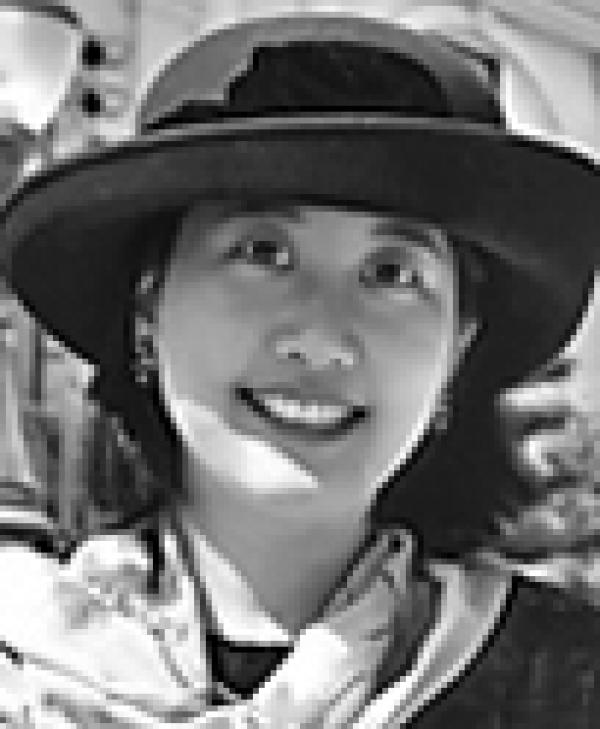Karen An-hwei Lee

Bio
Karen An-hwei Lee's first book-length collection, In Medias Res: a primer of experience in approximate alphabetical order (Sarabande Books, 2004), won the Kathryn A. Morton Prize and the Poetry Society of America's Norma Farber First Book Award. Her first chapbook, God's One Hundred Promises (Swan Scythe Press, 2002), was co-winner of the Swan Scythe Press Prize. The recipient of fellowships from the Yoshiko Uchida Foundation and the Beinecke Foundation, she holds an MFA in creative writing and a PhD in literature. She lives and teaches on the West Coast.
Photo by Tracy Estelle Tipton
Author's Statement
I finished a book-length prose poem sequence, Erythropoiesis, exploring the poetry-prose distinction while focusing on the body as a place where the medical meets the miraculous, using physiology as a metaphor for the genesis of poetic language. Erythropoiesis explores my relationship to Asia through blood heritage and the word as flesh, incorporating material from a histology atlas and a Chinese lexicon as parts of the book's poetic study of textual maps and textual bodies. The NEA Grant generously provided resources for me to research classical Chinese theories of poetry and aesthetics as the book developed towards completion. Thanks to the ample freedom of time enabled by the National Endowment for the Arts, my new book is brought to light without the hindrance of discontinuous creation.
Falling Leaves Return to Roots
During the heat wave, birds knelt in the shadows of fire hydrants,
shadows of unborn children to come. A woman dreamed she was with child;
dried arrangements only, no fresh flowers in the summer, no silk until autumn,
and baby's breath flowed from the hospital into her home. She lay down to
sleep at noon,
translated white poppies brimming with narcotic slumber, each purchased at a quarter.
The small heads resembled blanched pomegranates, a baby's fists shaken,
sand or summer grass in the fire hills. She desired warmth in motion,
skiff of light gliding over leaves returning to the sultry root.
She and the unborn warred for a long time, more earth than flesh
in languages stronger than human. Childhood was a sparse civilization of wood;
after warring in a month's time, love would be available in autumn.
Originally appeared in Spoon River Poetry Review, Winter/Spring 2003,
Vol. XXVII, No. 1

